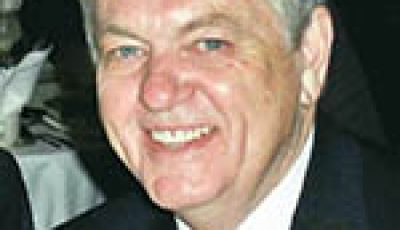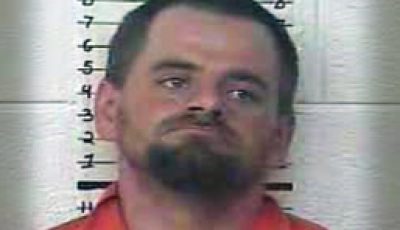Rand Paul speaks at U of C forum

U.S. Senator Rand Paul (R-KY) touched on the topics of the country’s deficit, foreign policy and drug abuse while addressing a group of about 100 people Tuesday afternoon in the Kohn Theater on the campus of the University of the Cumberlands in Williamsburg.
Prior to the start of his speech, Paul’s field representative, Bryan Mills, told the crowd this was an official visit from the senator so he wouldn’t be speaking about a lot of politically related topics.
That didn’t mean that Paul didn’t indirectly address some issues related to the upcoming presidential race.
“We have a lot of problems in this country and we don’t have enough money to solve everyone else’s problems,” Paul said.
He said charity is giving away your own money and not someone else’s money.
For instance, in 2014, Americans gave away nearly $400 billion of their own money, which is something you don’t see people in other countries doing especially communist and socialist countries.
“Communism and socialism don’t work,” Paul said. “Don’t be deluded by false prophets, who are running for the presidency saying, ‘Socialism’ and ‘free college’ … Ultimately a government big enough to give you everything is a government big enough to take it away from you. I would ask you what do you want for your future?”
Paul, who previously ended his presidential campaign, is seeking re-election to the U.S. Senate this year.
Paul spent about 40 minutes in the theater speaking to the crowd that included students, faculty and community members, in addition to fielding several questions from the audience.
“I went to a Baptist college so I feel right at home,” Paul started off telling the crowd.
He spent the first half of his address talking largely about two topics, foreign policy and the deficit.
Paul noted that the United States has a $19 trillion debt, which many of those in attendance Tuesday would be inheriting.
He said the country needs to decide what it wants from its government and whether it wants to be free or wants a government that coddles you from the beginning until death that is involved in every nook and cranny of your life.
“The problem is if you choose the second choice, you are also choosing this mountain of debt and you are also choosing the dislocations that big government gets by creating this debt and printing up all this money. You have a choice what kind of government you want,” Paul said.
Foreign policy
Paul said that the United States needs to ask itself what happens next if it topples some dictators, especially ones in the Middle East and that we could inadvertently make the situation worse.
Paul noted that democracy might not work everywhere, especially places where different groups were formed into an artificially created country, like Iraq, which has Shiite, Kurdish and Sunni groups.
“When you see Isis now occupying parts of Iraq, they are occupying the Sunni regions of Iraq. They didn’t really resist. The Sunnis I guess weren’t really positive, which was worst. They have hated them (Shiites) for 1,000 years,” Paul noted.
“Democracy may not work over there. Sometimes we give them democracy. We topple a leader and what happens is chaos.”
Audience questions
Many of the questions Paul fielded from the audience dealt with the issues of drug use and drug abuse.
The first question Paul took from the audience dealt with the topic of the rise of mental illness and drug abuse.
Paul noted that the drug problem is an increasing problem with a lot more of it around Kentucky.
Noting he wasn’t an expert on the topic of treating drug addiction, Paul said he thinks that people addicted to drugs are broken in many ways.
“There is a biological or chemical dependence yes,” Paul said. “I think to fix it and to fix the people is more complicated than just getting them off the drugs. I think they are broken spiritually and I think a faith-based component to treating drug addiction is important.”
Paul said he thinks there is also a work competent to stopping the drug abuse problem and he thinks people are less likely to abuse drugs if they are busy working eight to 10 hours per day.
Paul had Whitley Circuit Judge Dan Ballou, who was in attendance, address the crowd about drug court and how effective it has been.
Ballou said he thinks drug court is a good program that can be effective, but he thinks one problem, particularly in regards to heroin, is that the United States has had a foreign policy that has contradicted its domestic policy on drugs.
“There have been times where the war on terror and the war on drugs have stepped on one another,” Ballou said. “When you have an American foreign policy that protects, condones, endorses and gives money to drug lords in Afghanistan, who are growing poppy that is turned into heroin and sent back here to the streets, hills and hollers of America that is quite frustrating.”
Ballou, who is a retired U.S. Marine, who at one point was briefly deployed in Afghanistan, said he saw certain provinces where America was eradicating poppy but not in other provinces where “we were playing footsie with the devil and propping up certain drug lords, who were getting rich off the drug trade.”
When it comes to the issue of drug abuse, Ballou said that ultimately individuals have to want to get help.
Paul also fielded a question regarding more money being spent on the War on Drugs while less seems to be getting done and whether the focus should be on eliminating the consumers or the drugs.
“I think it is a tough question because I am not so sure there is an ultimate answer,” Paul responded.
Paul said his personal belief is that people committing offenses involving small amounts of drugs during their late teen years up to age 25 should be given a second chance.
“I am not big on locking people up. I think people should be given a second chance. If it involves drug testing and getting a job then I would rather see that,” he responded. “I think we have gone too far on a few things.”
He said this is why he likes drug court.
Paul said he has met ministers, who committed a non-violent crime when they were 21 years old, who are unable to get a job at any corporation in America because they have a criminal record.
“Everybody should get a chance to be redeemed,” Paul added. “Kentucky is moving more in a direction that I would like to see.”
This was the second time Paul has spoken at a Whitley County event in the last six weeks. On Feb 18, he addressed a crowd of about 80 people at The Dixie Café in downtown Corbin.







